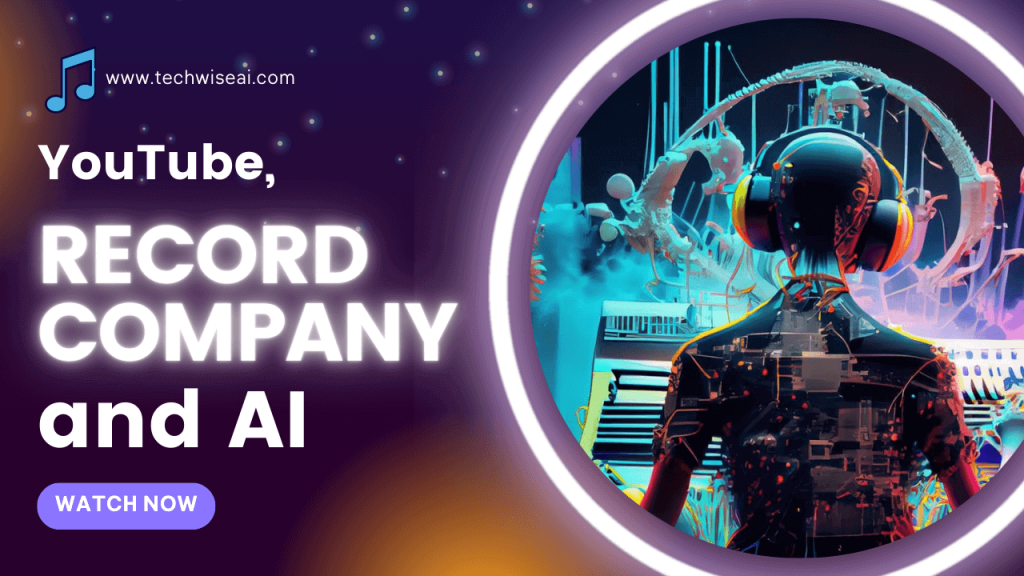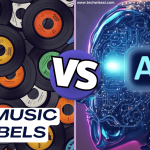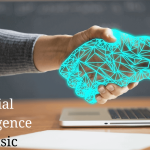The digital era has always been characterized by ground-breaking advancements, and YouTube’s most recent enterprise is no different. In an age where artificial intelligence (AI) music is steadily gaining popularity, YouTube aims to pioneer the idea of convincing record companies to license their music for AI music generators. This is not just a business move; it is a transformative step that could redefine the whole music industry.

The Emergence of AI Music
AI music generators have taken over the world of music making. These advanced algorithms can compose, produce and even perform songs that are often indistinguishable from those created by human artists. This technological marvel has opened up new horizons for musicians, producers as well as lovers of good tunes. From creating film scores to generating personalized playlists – there is nothing that cannot be done with AI-generated music.
However, like any other revolutionary technology there have also been some controversies surrounding this concept. Copyright infringement issues, ethical debates on creativity and possible job displacement among human musicians are hot topics around AI-generated music. Considering all these factors, YouTube’s attempt to get licenses from record companies is indeed a big leap forward.
YouTube’s Dream
For many years now YouTube has served as a platform where people share what they have created with others all over the world; from videos uploaded by individuals or groups showcasing their talents or skills in various fields such as dancing, singing etc.,’to documentaries about places visited during holidays or work trips’. By incorporating AI music creators into its system, YouTube seeks to foster this environment further by providing more tools for creative expression through audio content creation using machines programmed with deep learning algorithms capable of analyzing patterns found within vast amounts data collected over time which can then be used generate never before heard combinations sounds thus enhancing diversity musical genres available on site.’ The vision behind it all would be harnessing artificial intelligence so that we can have more music but still give credits where they are due.
To ensure that this goal is realized, the company plans on working out deals with major record labels which would allow them access their extensive libraries filled with different types of songs ready for use in AI-generated tracks. This strategy not only safeguards an artist’s intellectual property rights but also provides another income stream for artistes who may find themselves relevant even after machines start composing hits songs.
The Negotiations: A Risky Venture
‘It’s going to be no easy task, securing licenses from record companies for music intended for use by artificial intelligent systems.’ Such establishments are protective of their intellectual property and desire just recompense for artists signed under them.’ The problem lies in finding a way to defend creativity without stifling innovation.
YouTube is expected to center its talks around the following points:
- Sharing of revenue: Determining what percentage should go to whom out of every dollar earned through playing back any song created via an AI generator based on a specific artist’s catalog; this ensures that creators get well paid even if some of these funds end up being used in making works that do not need much human input apart from what machines provide during such processes.’
- Protection of copyrights: Establishing strong measures aimed at safeguarding copyrighted materials against unauthorized use like tracking devices designed specifically to identify where certain licensed tracks have been used without proper authorization being given then reporting such cases promptly so that appropriate action can be taken against infringers.’
- Transparency and responsibility : Ensuring there is transparency when dealing with AI created tunes monetisation.’ YouTube needs come clean about how it plans utilize or misuse compositions generated using deep learning algorithms integrated within its platform while at same time making regular checks validate legality status surrounding ownership rights associated with these pieces among all parties involved including record labels whose libraries might contain many samples needed during production stage coupled by frequent audits verify financial records related revenue streams originating from sales realized through distribution networks populated mainly independent recording companies specializing primarily underground types music genres considered non-commercial mainstream media outlets covering events involving such acts.’’
Potentialities Of AI Music
There are several benefits to be gained from AI music generators. For musicians, it opens up new avenues of creativity and collaboration. Imagine a songwriter using an AI generator to come up with a symphony or perhaps a model producer making intricate beats which surpass conventional song structure limits.’ Also, artificial intelligence could democratize the music industry by giving access to different production tools even small independent labels who would have never been able afford them if they were only accessible through large established record companies with support for commercial radio stations playing hits by artists signed under such imprints’.
AI music offers listeners an individual and immersive experience. AI algorithms can detect personal taste and create playlists that are specific to each user. It can also introduce people to new genres or artists thereby expanding their musical horizons.
Sustainability Of AI Music
One of the most fascinating things about AI music is its sustainability. Traditional music production often requires a lot of resources such as time, money, and manpower. This process becomes more efficient with AI generators which cuts down on environmental impact and saves costs.
Furthermore, AI music has the potential to breathe life into old works. Record companies can license their music for use in these systems so that they keep getting re-invented and presented to different generations over time. Not only does this preserve our cultural heritage but it also keeps up with the times in an ever-changing digital world.
Voices in the Community
The answer to YouTube’s initiative has been mixed with many positives too. Here are some comments from members of the music industry:
John – Music Producer: “Future-oriented AI generated soundtracks. Everything is likely going to change because there will be endless possibilities as a result of this move by YouTube to license songs for artificial intelligence driven platforms.”
Sarah – Independent Artist: “Being an indie artist myself, I see this as a great opportunity for us all! It can give more exposure to people like me if done right, leveling out playing fields.”
Mark – Music Enthusiast: “I’m really excited about AIs creating personalized playlists. It might show me what else could have never reached my ears forever!”
However there are concerns too:
Emma – Copyright Lawyer: “It’s a complex issue legally speaking; we must protect artists’ rights while ensuring licensing agreements remain transparent and fair.”
Dave – Classical Musician: “Though impressive I believe machine learning cannot replicate human touch in creation process; technology should rather enhance than replace creativity”
Conclusion:
YouTube’s effort of licensing music for AI generators is a brave step towards the future of music. It combines technology and artistry in an unprecedented manner which creates new avenues for innovation while upholding original creators’ rights.
For more information on AI music visit techwiseai.com. The site covers the latest news, features insightful articles as well as detailed analysis about artificial intelligence based systems used in generating songs among other topics related to them. Whether you’re a musician or just interested in finding out what lies ahead for us with regards to this field; techwiseai.com should be your number one destination.
In these times where technology changes rapidly we need to keep ourselves updated and ready for anything. Let us accept AI music with all its possibilities and discuss it too because only together can we come up with ideas that foster creativity, innovation and sustainable development within our various industries of interest.


Dogs Cane Corso in Moscow
cane-corso.moscow
Сколько времени требуется для того, чтобы лечение акне подействовало? – Большинство методов лечения акне требуют нескольких недель для появления улучшений, а максимальные результаты обычно видны через три месяца.
How long does it take for acne treatments to work? – Most acne treatments take several weeks to show improvement, with maximum results typically seen after three months.
удаление акне на спине https://www.allmed-info.ru/ .
Hey people!!!!!
Good mood and good luck to everyone!!!!!